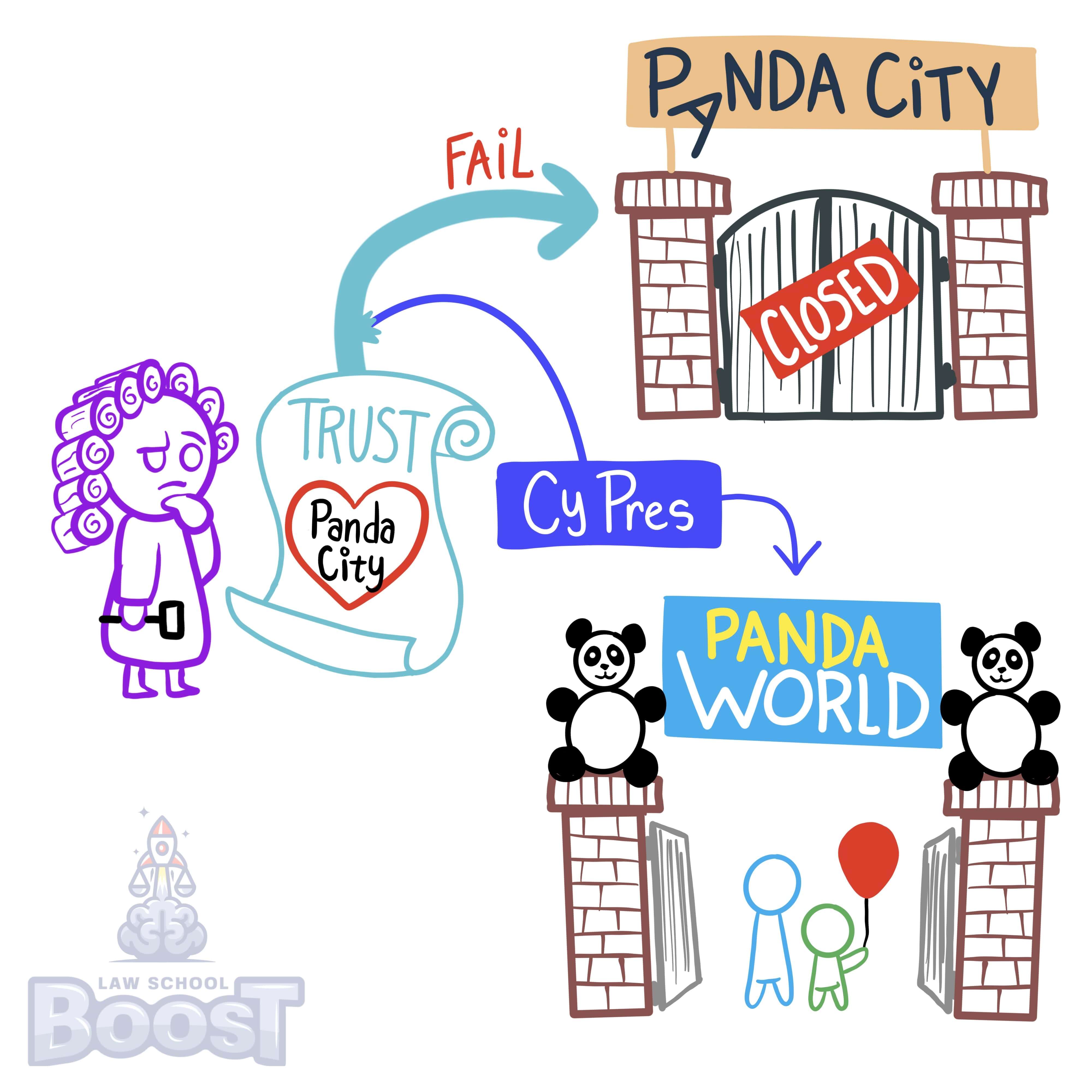🥺
Trusts • Charitable and Honorary Trusts
TRUSTS#011
Legal Definition
The doctrine of cy pres is a legal concept that gives courts the power to interpret the terms of a will, gift, or charitable trust where the beneficiary is a charity. This doctrine will become active in the intended wishes or conditions of the original document cannot be (a) carried out, (b) legitimately interpreted literally, or (c) legally performed.
Where a settlor had a general charitable intent, but the specified charitable use is no longer possible or practical, the court must decide whether the settlor intended the trust to fail or would have wished the property devoted to a similar use that is as near as possible to the original use. Where the court decides the settlor had a specific intent to benefit a particular charity, the property passes as a resulting trust to the settlor's successors in title.
Where a settlor had a general charitable intent, but the specified charitable use is no longer possible or practical, the court must decide whether the settlor intended the trust to fail or would have wished the property devoted to a similar use that is as near as possible to the original use. Where the court decides the settlor had a specific intent to benefit a particular charity, the property passes as a resulting trust to the settlor's successors in title.
Plain English Explanation
"Cy pres" is an old phrase that means "as near as possible."
Imagine you want to save the polar bears, so you donate a bunch of money to that cause, but then polar bears go extinct. Should your trust fail, or should it go to save other types of bears? Or arctic wildlife? Or climate change? This is what the doctrine of cy pres tries to figure out.
It applies whenever you have a gift made towards some entity or cause that can no longer be made (usually because the entity or cause no longer exists, but sometimes because it isn't clear anymore due to context).
Hop over to Hypos for some examples of how this would play out in the real world.
Imagine you want to save the polar bears, so you donate a bunch of money to that cause, but then polar bears go extinct. Should your trust fail, or should it go to save other types of bears? Or arctic wildlife? Or climate change? This is what the doctrine of cy pres tries to figure out.
It applies whenever you have a gift made towards some entity or cause that can no longer be made (usually because the entity or cause no longer exists, but sometimes because it isn't clear anymore due to context).
Hop over to Hypos for some examples of how this would play out in the real world.
Hypothetical
Hypo 1: Bob loves polar bears. It's all he talks about. He knows climate change is affecting their survival, but he also is looking forward to climate change making his coastal property a little closer to the water. Bob decides to place $100,000 into a trust to benefit a polar bear rescue charity called Polar Pals that exclusively works towards saving polar bears. A few days after creating the trust, Bob dies. A year after Bob dies, polar bears go extinct. The trust still has a substantial amount of money remaining. Result: Under the doctrine of cy pres, we need to assess what Bob would have wanted for his trust now that polar bears don't exist. You could try to argue that he'd want the money to still be used to fight climate change, but the evidence seems to show that he actually didn't care too much about climate change. He also didn't seem to care about other types of animals. Thus, the court would likely find Bob had a specific intent to benefit a particular charity, and now that the purpose of the charity no longer exists, the court will take the remaining money in the trust and convert it to a resulting trust. A "resulting trust" happens when a trust fails or cannot complete its purpose, and it basically means the money is given back to the original creator of the trust (or their children/family/successors).
Hypo 2: Sam loves polar bears. It's all he talks about. He's devastated by the impact that climate change is having on their survival. He knows it's a bigger problem than he can solve, but decides that creating a $100,000 trust to benefit Polar Pals would help the situation a little bit. After creating the trust, Sam dies. A year later, polar bears go extinct. Result: Here, it appears Sam has general charitable intent to try to help combat the impact of climate change and has merely chosen to focus on saving Polar Pals because he likes polar bears. A court may be willing to apply the doctrine of cy pres and find that a different climate change related charity would be "as near as possible" to Sam's original charitable goals, which means the court could change the beneficiary of the trust without Sam's approval.
Hypo 2: Sam loves polar bears. It's all he talks about. He's devastated by the impact that climate change is having on their survival. He knows it's a bigger problem than he can solve, but decides that creating a $100,000 trust to benefit Polar Pals would help the situation a little bit. After creating the trust, Sam dies. A year later, polar bears go extinct. Result: Here, it appears Sam has general charitable intent to try to help combat the impact of climate change and has merely chosen to focus on saving Polar Pals because he likes polar bears. A court may be willing to apply the doctrine of cy pres and find that a different climate change related charity would be "as near as possible" to Sam's original charitable goals, which means the court could change the beneficiary of the trust without Sam's approval.
Visual Aids



